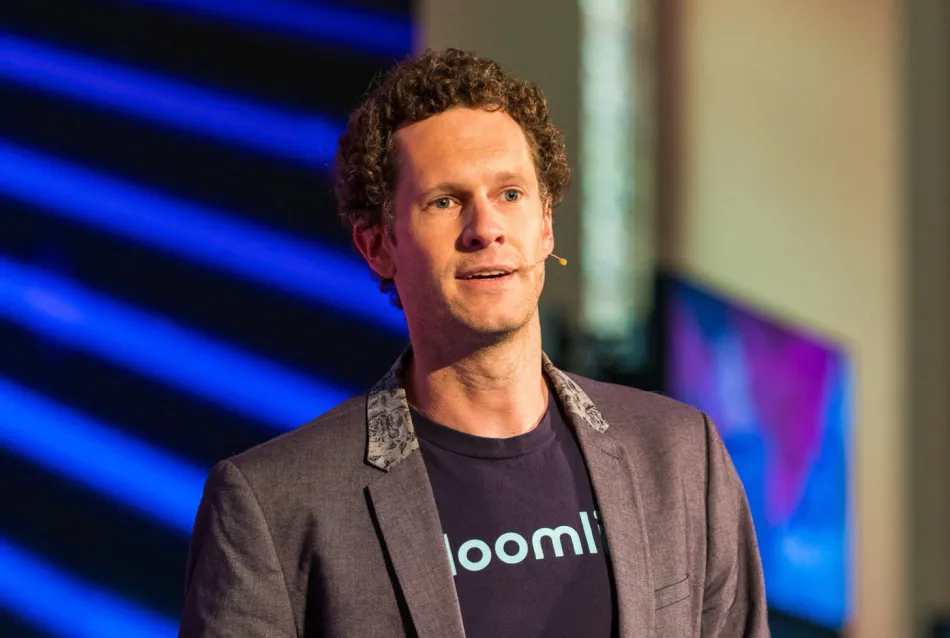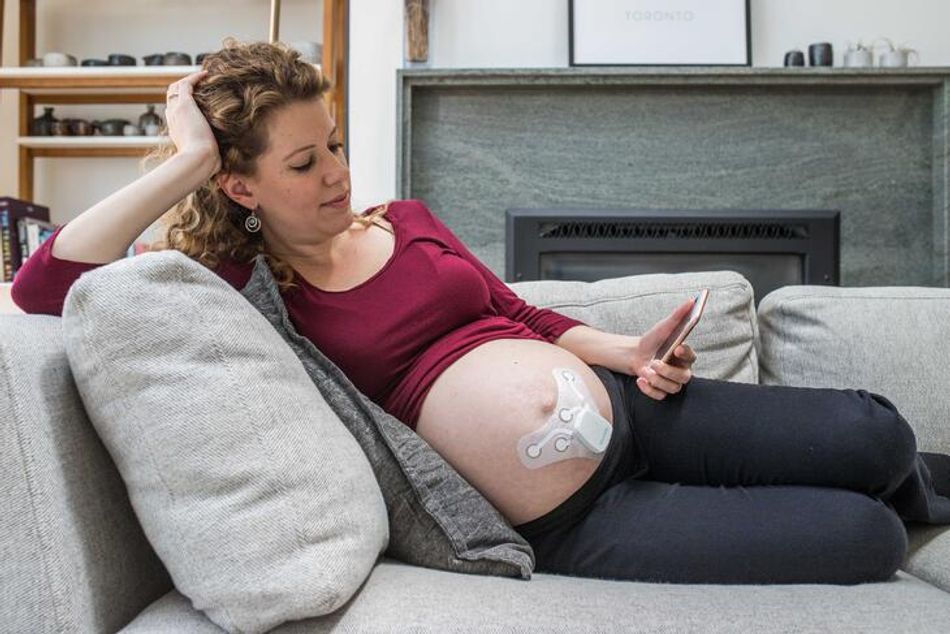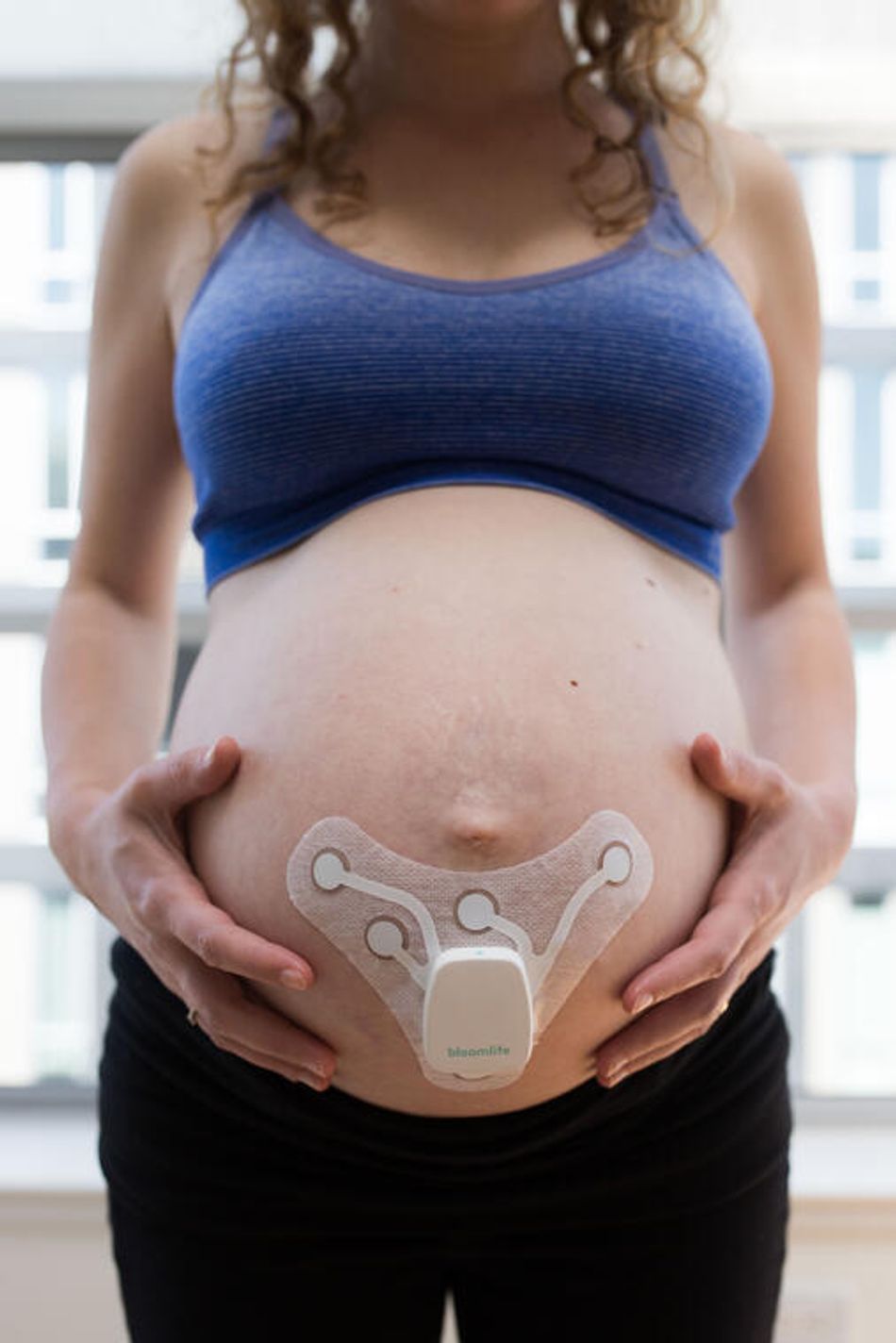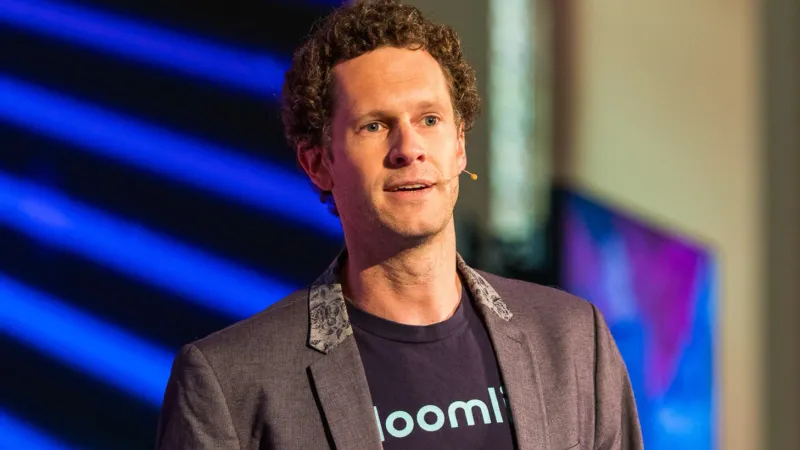Fe+male Tech Heroes Roles Models 36 - Julien Penders: 'Reality is a relative concept, and we must understand that when designing a product.'
The Fe+male Tech Heroes was initially designed as a platform from women to (primarily) women. Over the years, our network has expanded and reached many men who understand that diverse input is pivotal for the success of any project. One of those smart minds is Julien Penders, who believes initiatives like ours are crucial to inspire the younger generation and change society for the better.
The Fe+male Tech Heroes was initially designed as a platform from women to (primarily) women. Over the years, our network has expanded and reached many men who understand that diverse input is pivotal for the success of any project. One of those smart minds is Julien Penders, who believes initiatives like ours are crucial to inspire the younger generation and change society for the better. With a degree in Biomedical Engineering, Julien started his professional career at IMEC, working for about eight years with wearable technologies for health and wellness. From the intersection of Julien's familiarity with medtech wearables and his own experience as a father, he founded Bloomlife in 2015, developing a fantastic solution for remote prenatal care management. According to him, working in a heterogenous group is the only way to design such a product.

"My wife and I having our first baby in 2013 opened my eyes to some of the challenges that emerge with a pregnancy," he declares. The doubts and uncertainties his pregnant wife was going through were a wake-up call for Julien to see the triangulation between his knowledge, the trends in wearable tech, and his experience in creating a family. He realized he had the means to improve prenatal care: "All that merged into Bloomlife. We could employ technology to help answer expectant mothers' questions and support them in having better and higher quality care."
The solution connects the mother and the whole healthcare ecosystem around her (midwife, gynaecologist, etc.), facilitating the communication between them, ensuring the data is available when needed, and promoting more objective care. That means a considerable decrease in unnecessary visits to the hospital—and more peace of mind for parents. As Julien explains, the platform "allows expectant moms to have data collected in the comfort of their homes, putting them in contact with their doctor whenever necessary." His wearable pregnancy monitoring device generates and analyzes information to track risk factors which are monitored by the expectant mother and her care team. But it's not only about statistics and figures: "Data is only as good as what you make out of it," Julien emphasizes; "it's crucial to act on that data and provide a care service back to the mom with a healthcare provider." The three components—connecting devices, data analytics, and virtual care service—are the pillars that allow Bloomlife to provide a more efficient way to care for pregnant women.
Receiving hundreds of 'thank you' messages from new mothers: Julien says there's nothing more inspiring and encouraging than that. "When someone writes to you saying 'thank you, Bloomlife helped me seek assistance in time, and you saved my baby...' That's huge. That's what drives us forward, for sure," he celebrates.
A diverse team is vital to succeed
Bloomlife's recruitment process is diverse from the get-go. Interviews only start once a truly diverse portfolio of candidates is reached. "It's something we started applying about two years ago, and it's been great because the result is there. It takes a bit more time as it's harder to source. But it really works," Julien reports. Bloomlife's team of 20 people (of which 8 are women) boasts 10 different nationalities.
However, setting up a diverse team just for the sake of it is far from Julien's objective. For him, being different-minded is the only way to succeed as a company due to the nature of their product. As he highlights, "we serve the needs of moms and their care team, regardless of their ethnicity, where they live, or social determinants. And you can only do and understand that if you have different communities in your team that can evoke the biases in what you are developing."

That is also true for the clinical studies Bloomlife has been running, intending to address the needs of moms globally and not for a specific profile. A comparison between the ethnical diversity in Belgium, where Julien is originally from, and the US, where he is currently established, is a good example: assembling a diverse cohort of study participants presented a considerable challenge in Belgium; while strategically selected clinical sites in the USA provided an interestingly diverse pool of study participants. "We need to make sure that the data we collect, whatever algorithm we develop, or validation we do, is representative of a diverse sample of the population," he explains.
Mind your point of view
Julien invites us to consider reality from a mindful perspective, understanding that it is not an absolute concept. For him, that's a paramount standpoint when you design a product. "Each of us evolves in what we have defined as our reality, a concept built upon our experience, culture, and other aspects around us. Understanding that everybody has their own reality, which may be different from my own, is crucial. That has been an eye-opener in everything I do," he says. In that sense, it's important to remember that the person we are addressing has a different reality than ours and may not perceive or interpret facts the same way we do.
Besides, as humans, we make an edition of what we hear, influenced by where we stand and our background. When designing a product, entrepreneurs must realize that the user will have a different reality than theirs. "We may think of it as a form of empathy or the simple realization that reality is a relative concept. I think that has been probably the best piece of advice that I've been given," he declares.
A proud father and an entrepreneur—in that order
That's a popular Julien's TEDx Talk. Becoming a father was one of Julien's career's triggering points, helping him realize his goal was to work to make a difference in the lives of parents and babies. According to him, watching his own children grow puts his world into another perspective: "Things that were important before have much secondary importance now. You can almost see the world through their eyes sometimes, and you realize what is crucial. Parenthood changes your values and impacts everything you do." While developing a product directed to expectant mothers and working together with them, Julien is constantly reminded of what it means to expect a child. Moreover, it is clear to him how helpful applications can be in that monumental event.
The entrepreneur has adapted his professional lifestyle to be with his children and shares parenthood tasks with his wife: "I think the old view of a dad who works eight-to-seven and doesn't really see the kids is antiquated. I don't believe in it, and we see many more people embracing a contemporary approach to fatherhood based on much more egalitarian roles in raising the family. It is the way we organize our life." Furthermore, Julien can't place a pin on a division between life and work—and that's a great thing, according to him: "I have a good work-life balance, not by drawing a straight line between work and life, but by making them coexist in harmony. Because of that flexibility, I can organize my day around my children. I spend more time with them now than before I started Bloomlife,” he celebrates.
Julien also tries to promote that equality in his company: Bloomlife’s maternal leave policy gives new mothers ample time to care for their newborn, and new fathers are entitled to a month of paternity leave.

On leadership
Bloomlife's founder recognizes he's been asked several times why two men have started a company focused on maternal and prenatal health. Julien's answer is straightforward: "Just because our bodies haven't been exposed to it, doesn't mean we do not care about it or are not sensitive to it. We've supported our partners through pregnancy the best we could, and we really wanted to make a difference in that space." However, Julien declares it can be difficult for white males to tackle problems that are not necessarily familiar to them. He highlights that most startups are founded by men, meaning that those companies tend to focus on issues faced by that community. Therefore, Julien emphasizes the importance of changing that scenario: "People start companies to solve problems they have experienced. We need more female leaders who will focus on the problems faced by women. That is how we will create more diversity in innovation. That's the same with ethnic and cultural diversity: we need more leaders from a variety of communities to create startups that will target the specific needs of these communities, and promote equality and diversity in innovation."
Julien describes himself as very down to Earth and attributes that characteristic to the reason why he has no famous role models. The ones who have had the most significant influence on his life are very close: "My wife and my co-founder. These two people have had the biggest impact on what and why I do things." Nevertheless, he underlines the importance of having mentors guiding him early in his career. Now, he offers mentorship programs to young companies and founders to help them get started. As he explains, "it's kind of a give back on what I was exposed to. It was important to have mentors--experienced entrepreneurs who could help and inspire me; people who do impressive things and inspire you to do the same. I have much closer mentors; you could consider them as coaches. They give me perspective, helping me think or look at reality differently while growing as an entrepreneur," he concludes.
